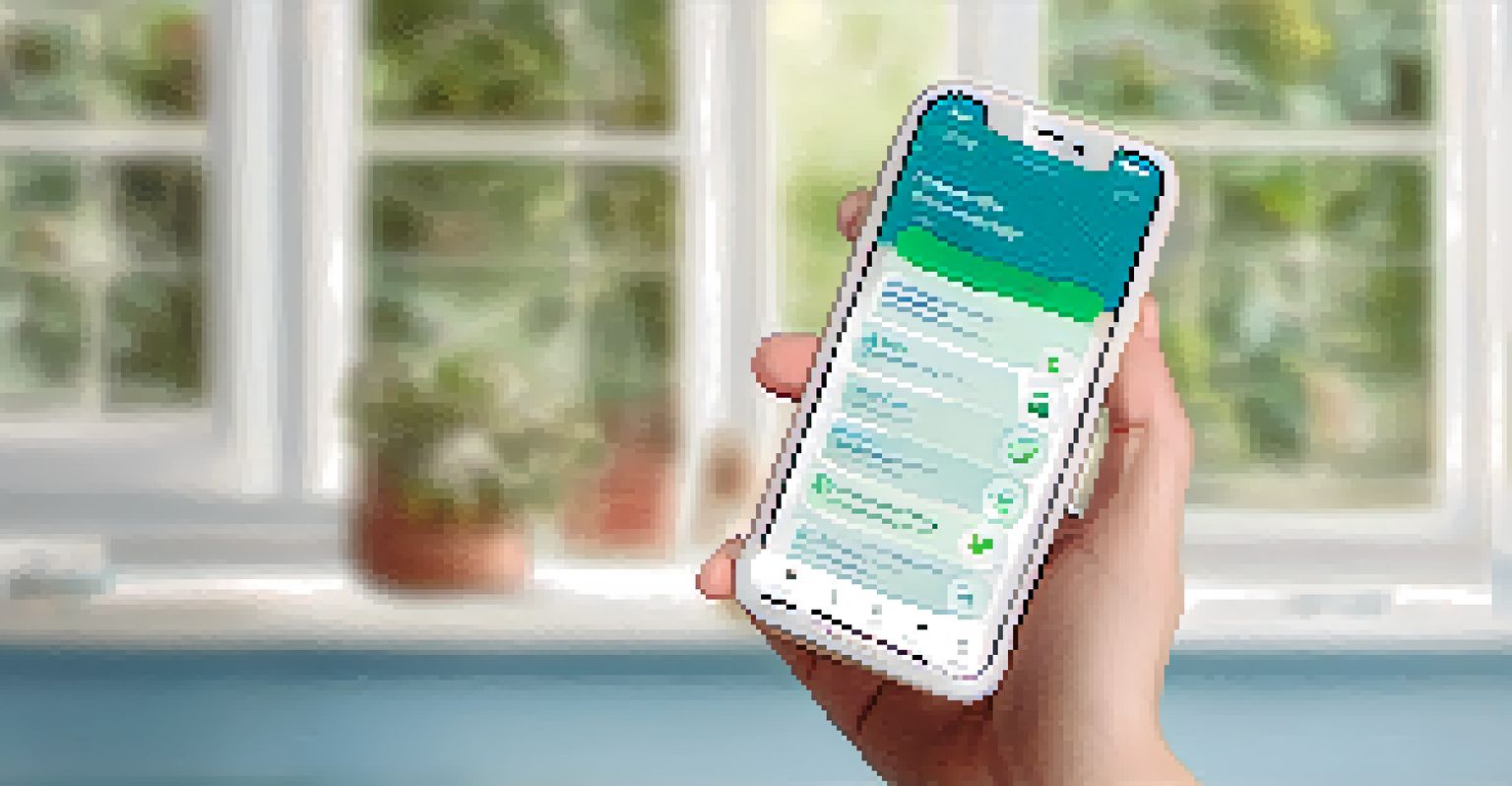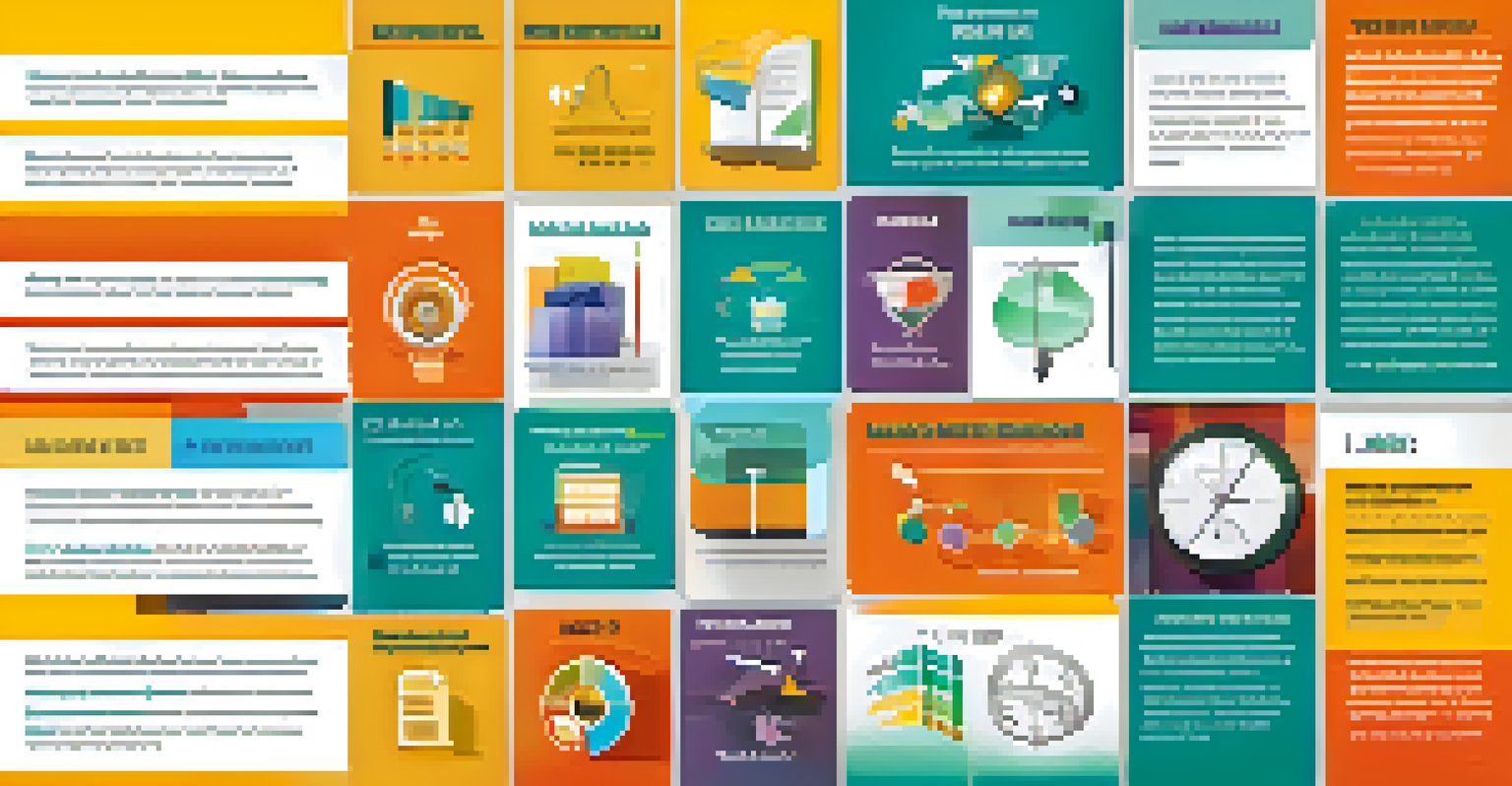Developing Skills for Critical Health Literacy

Understanding Critical Health Literacy and Its Importance
Critical health literacy goes beyond simply reading health information; it involves the ability to analyze and evaluate that information critically. This skill is essential in navigating the complex landscape of healthcare, where misinformation can easily spread. By developing critical health literacy, individuals can make informed decisions about their health, advocating for themselves and others effectively.
Health literacy is the degree to which individuals have the capacity to obtain, process, and understand basic health information and services needed to make appropriate health decisions.
Consider a scenario where someone reads about a new medication online. Without critical health literacy, they might accept the information at face value, potentially putting their health at risk. However, a critical thinker would question the source, look for scientific evidence, and consult healthcare professionals. This proactive approach not only empowers individuals but also ensures better health outcomes.
Furthermore, critical health literacy is essential in today’s digital age, where health information is abundant but often unreliable. Learning to discern credible sources from unreliable ones is a vital skill that can help individuals navigate health challenges. Ultimately, fostering this skill can lead to more empowered patients and healthier communities.
Key Components of Critical Health Literacy Skills
Developing critical health literacy involves several key components, including information evaluation, decision-making, and communication skills. Information evaluation allows individuals to assess the credibility of sources, such as distinguishing between peer-reviewed studies and anecdotal evidence. Decision-making skills empower individuals to weigh the pros and cons of different health options based on reliable information.

Additionally, effective communication is crucial for discussing health concerns with providers and peers. This includes asking the right questions and articulating health needs clearly. For instance, a patient who understands their condition can better convey their symptoms to a doctor, leading to more accurate diagnoses and treatments.
Importance of Critical Health Literacy
Critical health literacy empowers individuals to analyze and evaluate health information, enabling informed decision-making in healthcare.
Lastly, self-management skills play a significant role in critical health literacy. This means individuals should feel confident in managing their health conditions, whether through medication adherence or lifestyle changes. By honing these components, individuals can become more proactive in their healthcare journeys.
Practical Strategies for Improving Critical Health Literacy
Improving critical health literacy can be achieved through several practical strategies. One effective approach is to participate in workshops or courses focused on health literacy and critical thinking. These sessions often provide valuable insights and tools for analyzing health information critically, helping participants feel more equipped to make informed decisions.
The best way to predict your future is to create it.
Another strategy is to seek out reliable health resources, such as reputable health organizations or government websites. By familiarizing oneself with these sources, individuals can develop a habit of verifying information before acting on it. For example, instead of sharing health advice from social media, one could check the Centers for Disease Control and Prevention (CDC) for accurate updates.
Lastly, engaging in discussions with family and friends about health topics can foster a supportive environment for learning. These conversations can help clarify doubts and enhance understanding, making it easier to digest complex health information. By sharing experiences and insights, individuals collectively improve their critical health literacy.
The Role of Technology in Enhancing Health Literacy
In today's world, technology plays a pivotal role in enhancing critical health literacy. With the internet at our fingertips, accessing vast amounts of health information is easier than ever. However, this wealth of information comes with the challenge of identifying credible sources, making it essential for individuals to develop skills to navigate this digital landscape effectively.
Mobile applications and online platforms can assist users in tracking their health, accessing educational materials, and connecting with healthcare professionals. For instance, many apps offer reliable health quizzes and articles that encourage users to reflect on their health knowledge and gaps. This interactive approach keeps learning engaging and relevant.
Challenges in Health Literacy Development
Overwhelming health information and disparities in education can hinder the development of critical health literacy skills.
Moreover, telehealth services have emerged as a valuable resource, allowing patients to consult with healthcare providers remotely. This increase in accessibility means that individuals can seek clarification and guidance on health issues without the barriers of distance. However, it also requires patients to be proactive in asking questions and understanding their health conditions critically.
Challenges in Developing Critical Health Literacy Skills
While the importance of critical health literacy is clear, various challenges can hinder its development. One major obstacle is the overwhelming amount of health information available, which can lead to confusion and misinformation. Many individuals may feel lost in a sea of data, making it difficult to discern what is relevant and accurate.
Additionally, disparities in education and access to resources can further complicate the attainment of critical health literacy. Individuals from lower socioeconomic backgrounds may lack the tools needed to improve their health literacy, such as internet access or educational support. This inequity can lead to a cycle of poor health outcomes and limited understanding.
Furthermore, the rapid evolution of medical knowledge and technology means that staying informed can be challenging. What was considered accurate information a few months ago may now be outdated. Consequently, individuals must commit to lifelong learning and remain adaptable in their critical health literacy journey.
The Impact of Critical Health Literacy on Public Health
Critical health literacy has far-reaching implications for public health. When individuals possess strong health literacy skills, they are more likely to engage in preventive health measures, leading to healthier communities. For example, informed individuals are more likely to participate in vaccinations or screenings, ultimately reducing the prevalence of diseases.
Moreover, communities with higher levels of critical health literacy can respond more effectively to health crises. During a pandemic, for instance, those who understand health guidelines and can critically evaluate information are better equipped to make safe choices. This collective understanding can significantly impact overall public health response and resilience.
Future Directions for Health Literacy
Collaboration among healthcare providers, educators, and policymakers is essential to enhance critical health literacy through effective communication and innovative resources.
Furthermore, fostering critical health literacy can help reduce health disparities among different populations. By empowering individuals with knowledge and skills, public health initiatives can work towards creating equitable access to health information. Ultimately, promoting critical health literacy can lead to healthier individuals and, consequently, healthier societies.
Future Directions for Enhancing Critical Health Literacy
Looking ahead, enhancing critical health literacy will require collaborative efforts from various stakeholders, including healthcare providers, educators, and policymakers. Integrating health literacy training into educational curricula can help instill these skills from a young age, promoting lifelong learning. By making health literacy a priority in education, we can cultivate a more informed generation.
Additionally, healthcare providers can play a critical role by ensuring that they communicate clearly and effectively with patients. This involves using plain language, avoiding jargon, and encouraging questions. By fostering an open dialogue, healthcare professionals can empower patients to take charge of their health.

Lastly, leveraging technology to create innovative educational tools can further enhance critical health literacy. Interactive online courses, mobile applications, and social media campaigns can reach a broader audience, making health information more accessible and engaging. By embracing these future directions, we can create a society where critical health literacy is a cornerstone of health and well-being.